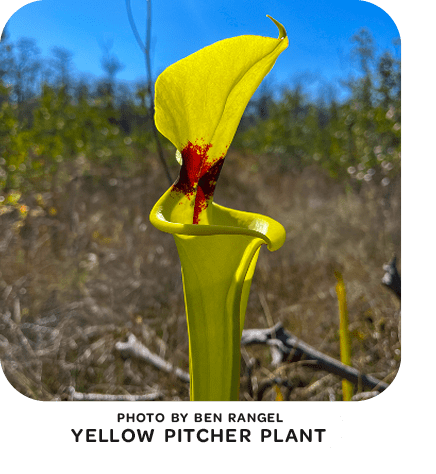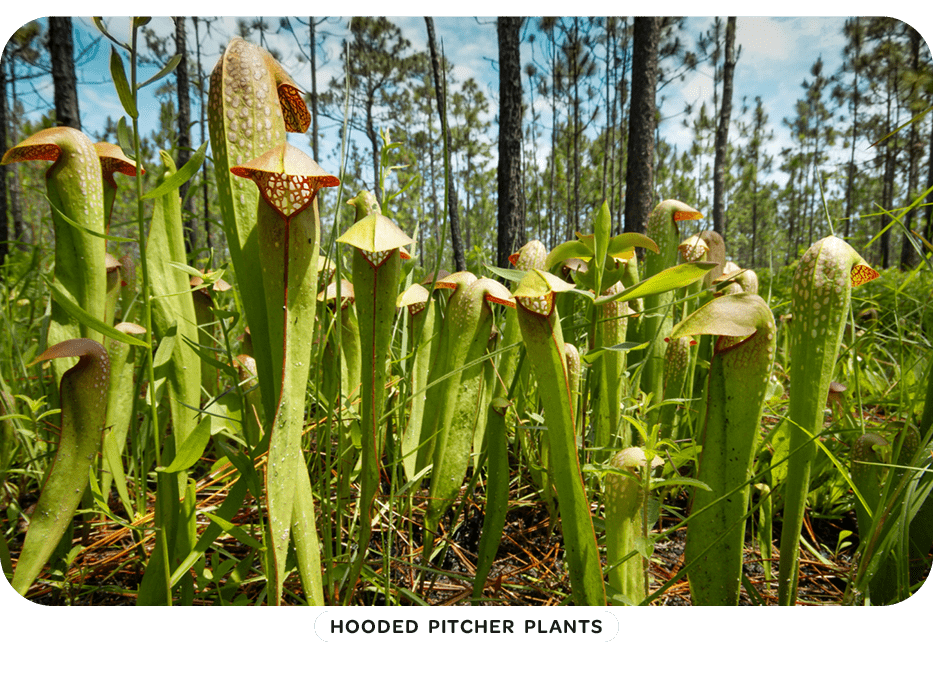
Bug-eating Bog Plants
by Ben Rangel
We may see them as mysterious and exotic, but Florida is home to more types of carnivorous plants than any other state. If you want to experience these fascinating plants, the most easily seen are pitcher plants. The various types of pitcher plants found in Florida can grow to nearly three feet tall and have leaves that are yellow-green, reddish with splotches of white, or purple. One of Florida’s greatest sights delights the eye in late March through April, when bogs are full of pitcher plants in bloom with yellow, purple or red dangling flowers.
The ”pitcher” parts of these plants are actually upright, hollow leaves. Insects are attracted to the bright colors of flowers and to nectar secretions and enticing odors produced by some pitcher plants. Insects that venture into the pitcher may encounter downward pointing hairs on a slippery wall that lead to a pool of digestive enzymes or rainwater. These plants have evolved to digest bugs to get a rich source of nutrients, which are lacking in the wet, acidic soils where pitcher plants tend to grow.
Pitcher plants occur as far south as central Florida, but most are found in northwest Florida, in areas such as the Blackwater River State Forest or Apalachicola National Forest. In these areas, pitcher plants can be seen from the roadside. The Florida Wildflower Foundation has more information on where to see them in their recent article on carnivorous plants. For the more adventurous, Florida Hikes! highlights hiking trails where pitcher plants can be viewed. Just remember that the bogs where these plants grow are fragile habitats, and visitors should avoid venturing into them.


Enjoying Carnivorous Plants Responsibly
Enjoy these unique and beautiful plants by visiting areas that have boardwalks or established trails where you can see them without harming their native habitat by tromping through bogs. If you want to try growing carnivorous plants at home, be aware many of these plants are under state and federal protection because of declining populations. Some nurseries and plant growers offer carnivorous plants for sale, and it can be rewarding to plant a few in your yard. To guard against the possibility that the plants you are buying were illegally collected from the wild, ask about their sources and buy only from reputable sellers offering nursery-grown plants.